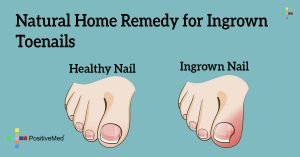
Strawberries, often lauded for their taste and vibrant red hue, might have more to offer beyond flavor. A recent randomized, controlled study delves into the potential cognitive and mood benefits of consuming strawberries, particularly for middle-aged individuals grappling with overweight and insulin resistance. The study sheds light on anthocyanins, bioactive compounds found in strawberries and other berries, as potential neuroprotective agents.
Study Overview:
Target Population:
- Middle-aged individuals with overweight and insulin resistance.
- Participants self-reported mild cognitive decline.
Anthocyanins and Neuroprotection:
- Previous research on blueberries hinted at improved executive brain function due to anthocyanins.
- The study investigates whether anthocyanins in strawberries could slow cognitive decline and enhance mood.
Research Design:
- Small-scale randomized, double-blind, placebo-controlled trial.
- 5 men and 25 women participated, divided into strawberry consumers and placebo groups.
Intervention:
- The experimental group consumed strawberry powder equivalent to one cup of fresh strawberries daily.
- The placebo group received a visual and taste-matched placebo.
Outcome Measures:
- Neurocognitive health and mood were assessed before and after the 12-week trial.
- Key parameters: “Intrusion errors” frequency and self-reported mood.
Findings:
Memory and Mood Improvement:
- The experimental group reported a reduction in memory interference and lower depression levels.
- Focus on “intrusion errors” in a word-learning task as a primary measure.
Anthocyanins and Neuroinflammation:
- Anthocyanins in strawberries are posited as potential anti-inflammatory agents.
- Reduction in inflammation and oxidative stress is seen as protective against cognitive decline.
Nutritional Expert’s Perspective:
- Anthocyanins, responsible for the red pigment in strawberries, are potent antioxidants with anti-neuroinflammatory properties.
- Other fruits like blueberries, blackberries, and currants also contain anthocyanins.
- Frozen strawberries retain nutritional value and can be a convenient option.
Neurologist’s Skepticism:
- Dr. Clifford Segil questions the direct neuroprotective impact of anti-inflammatory foods.
- Cites the lack of significant evidence correlating anti-inflammatory medications with memory protection.
- Suggests potential mood benefits could be linked to healthier eating patterns and weight management.
Future Considerations:
- There is a need for larger-scale and longer-term studies to establish the sustained impact on cognitive health.
- Comparative assessments against existing neuroprotective interventions and medications.
While the study hints at the positive effects of strawberries on memory and mood, skepticism remains about their direct neuroprotective role. The potential influence on inflammation and mood improvement warrants further exploration. Whether strawberries become a staple in the fight against cognitive decline or remain a delightful addition to a balanced diet awaits more extensive and conclusive research.





